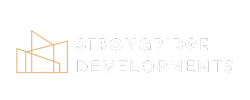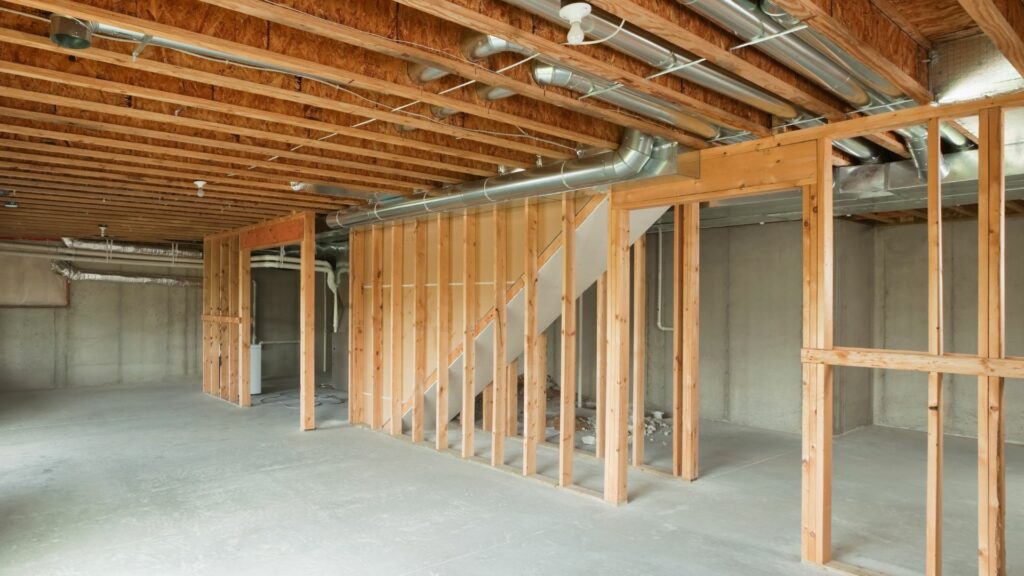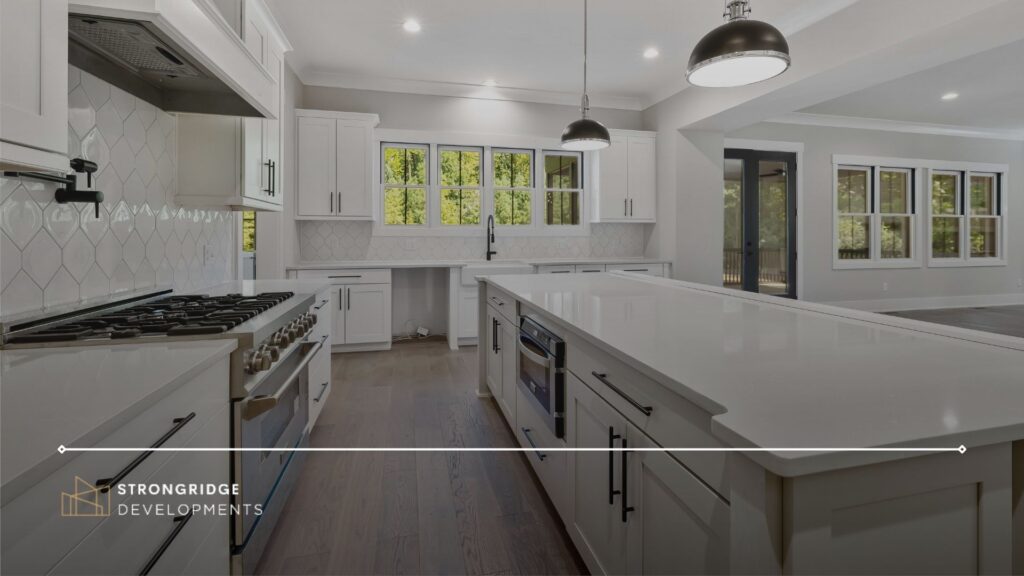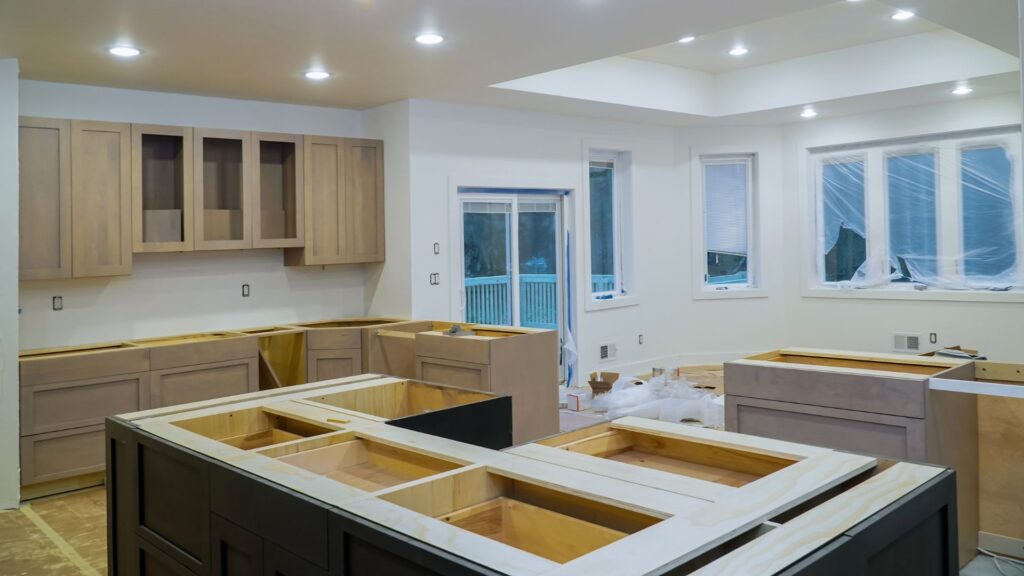Developing a basement in Calgary can be a rewarding investment. It not only adds extra living space but also increases the value of your property.
However, the question that often arises is, “How much does it cost to develop a basement in Calgary?” The answer isn’t straightforward.
The cost of basement development can vary widely, influenced by factors such as size, design complexity, and material choices. Understanding these factors can help you plan a realistic construction budget.
In this article, we’ll provide a comprehensive cost breakdown to help you navigate the financial aspect of your basement development project.
Understanding Basement Development Costs
Basement development costs in Calgary can range from basic to high-end, depending on your preferences. A simple, functional basement development may start from a lower range. However, if you’re envisioning a luxurious space with high-end finishes, your budget will need to be significantly larger.
It’s also important to factor in the cost of permits and inspections. These are necessary expenses to ensure your basement development complies with local building codes.
Labor costs in Calgary can also impact the total cost of your project. These costs can fluctuate based on the current market conditions and the specific requirements of your basement development.
Lastly, the cost of materials used in the project can greatly affect the overall budget. High-quality materials may cost more upfront, but they can provide better durability and aesthetics in the long run.
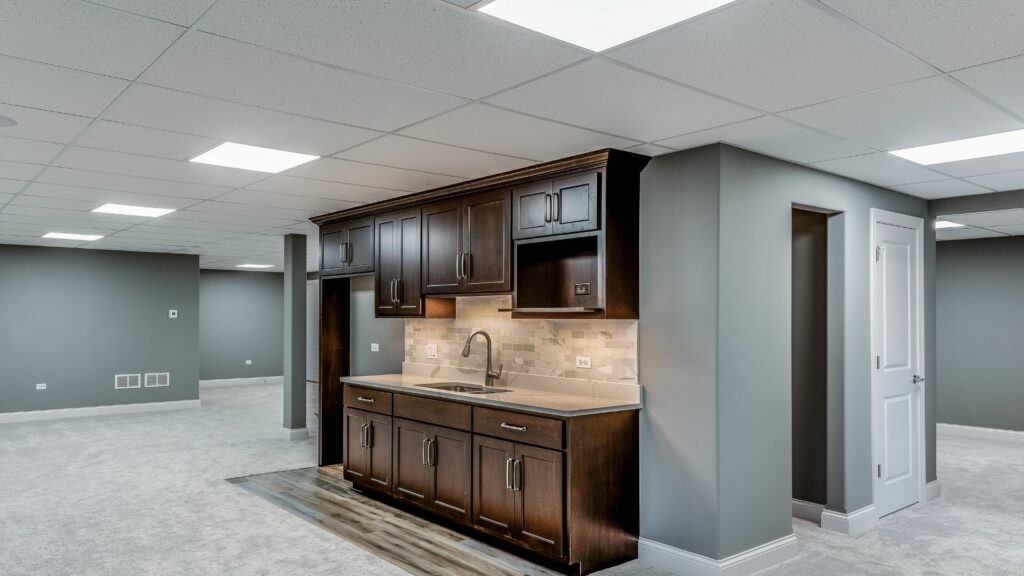
Key Factors Affecting Your Basement Development Cost
The cost of developing a basement in Calgary is influenced by several factors. The size of the basement and the complexity of the design are two major considerations.
The type of materials used and the labor costs in Calgary also play a significant role. Additionally, the cost of permits and inspections can add to the overall budget.
Size and Design Complexity
The size of your basement directly impacts the cost of development. Larger basements require more materials and labor, increasing the overall cost.
Similarly, a complex design with custom features will require more resources, thus increasing the budget.
Labor and Material Costs
Labor costs in Calgary can vary based on the current market conditions. It’s important to get multiple quotes to ensure you’re getting a fair price.
The cost of materials can also fluctuate. High-quality materials may cost more upfront, but they can provide better durability and aesthetics.
Permits and Inspections
Permits and inspections are necessary to ensure your basement development complies with local building codes. The cost of these can add to the overall budget.
It’s important to factor in these costs when planning your basement development project. This will help you set a realistic budget and avoid unexpected expenses.

Major Components of Basement Development
Basement development involves several major components. Each of these components contributes to the overall cost of the project.
Electrical work, plumbing, and HVAC systems are among the most significant components. The quality of finishes, such as flooring and paint, also greatly affects the final cost.
Electrical, Plumbing, and HVAC
The cost of electrical work, plumbing, and HVAC systems can be substantial. These systems are essential for a comfortable and functional basement.
It’s important to budget for these costs when planning your basement development project.
Finishing Touches: Flooring and Paint
The quality of finishes can greatly affect the final cost of your basement development. High-quality flooring and paint can enhance the look and feel of your basement.
However, they can also increase the overall cost. It’s important to balance quality and cost when choosing finishes for your basement.
Planning Your Budget
When planning your basement development, setting a realistic budget is crucial. This budget should account for all potential costs.
The Importance of a Contingency Fund
It’s advisable to set aside a contingency budget. This fund covers unexpected expenses during construction.
Without a contingency fund, you may find yourself over budget.
Getting and Comparing Contractor Quotes
Obtaining multiple quotes from contractors is a smart move. It helps ensure competitive pricing.
Remember, the cheapest quote may not always offer the best value. Consider the contractor’s reputation and quality of work as well.
Maximizing Your Investment
Basement development is a significant investment. However, with careful planning and budgeting, it can add substantial value to your property.
Remember, the goal is to create a functional, comfortable space that enhances your home’s appeal.
Frequently Asked Questions
What are the typical project costs involved in basement renovations in Calgary?
Typical project costs for basement renovations in Calgary include material costs, labor costs, equipment rentals, and expenses for permits and inspections. Costs can vary based on the size of the basement, the complexity of the design, and the quality of materials used.
How can I create a construction budget for my basement development?
To create a construction budget, start by listing all potential expenses, including labor, materials, equipment rentals, and any indirect costs such as permits and inspections. Using budget templates or construction management software can help organize and track these costs effectively.
What are the common cost overruns in construction projects, and how can I avoid them?
Common cost overruns in construction projects can include unforeseen structural issues, changes in material prices, and additional design requirements. To avoid these, thorough project planning and having a contingency fund are crucial. Regularly reviewing the project expenses against the budget can also help manage and mitigate overruns.
How do labor costs impact the total cost of basement development in Calgary?
Labor costs are a significant part of the total expenses in basement developments and can vary depending on the scope of work and the current market conditions. It’s important to get multiple quotes to ensure you receive fair pricing and to understand the breakdown of these costs including any overhead or indirect costs.
What should be considered in cost estimations for a basement renovation project?
Cost estimations should include direct costs such as materials and labor, as well as indirect costs like overhead, equipment rentals, and permits. Accurately estimating these costs requires detailed project planning and possibly the use of construction management software for better accuracy.
How can construction management software assist in managing a basement renovation project?
Construction management software helps in tracking project expenses, scheduling team members, and maintaining timelines. It can also provide tools for budget tracking and communication among all parties involved, ensuring a more organized approach to managing your basement renovation project.
What types of costs should be included in the basement development cost?
When planning basement development, include types of costs such as material costs, labor costs, equipment rental costs, and any indirect costs such as project management or administrative expenses. Also, consider the cost of utilities and any required updates to plumbing, electrical, or HVAC systems.
Why is it important to have a contingency fund in construction project budgets?
A contingency fund is crucial because it covers unexpected expenses and cost overruns, which are common in construction projects. Having this fund can prevent the need to halt the project or cut corners due to budget limitations.
